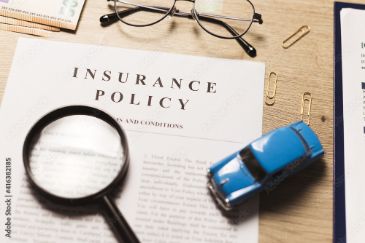An auto insurance policy involves several different types of coverage, with each serving a different purpose. New York has a minimum coverage requirement for the following three types:
- No-Fault (Personal Injury Protection) – to pay medical expenses, lost earnings, and other reasonable and necessary expenses, for example household help and transportation to medical providers, for a driver or passenger injured in, or a pedestrian injured by, your car;
- Liability – to protect against the harm your car, or any car you drive with the owner’s permission, might do to other people and their property; and
- Uninsured Motorists – to protect against the injuries you, your family or your passengers might suffer in a hit-and-run accident or in an accident with an uninsured vehicle.
 The purpose of No-Fault insurance is to restore individuals hurt in auto accidents to health and productivity as swiftly as possible. For medical providers the New York minimum coverage for No-Fault benefits is critically important. The minimum policy amount for Personal Injury Protection is $50,000 per person, however, additional coverages can be available to supplement the basic coverage amount.
The purpose of No-Fault insurance is to restore individuals hurt in auto accidents to health and productivity as swiftly as possible. For medical providers the New York minimum coverage for No-Fault benefits is critically important. The minimum policy amount for Personal Injury Protection is $50,000 per person, however, additional coverages can be available to supplement the basic coverage amount.
An insured may purchase Additional PIP coverage, to raise the overall limit of No-Fault benefits available in case of an accident up to $100,000 or higher.
Medical providers are truly limited by PIP policy limits because upon a policy exhaustion, it can become very difficult if not impossible to have medical bills paid. In fact, carriers are only legally obligated to pay out PIP benefits for a particular claimant up to the policy limit.
Thus, it is vital that a medical provider submits all bills as soon as possible to ensure the best chance for them to be paid. If a bill is denied then the claim can be brought to arbitration for an expeditious proceeding where, if awarded, the claim has the best chance of being paid out before a policy exhausts.
Sources:
Minimum Auto Insurance Requirements Coverage
Optional Auto Insurance
